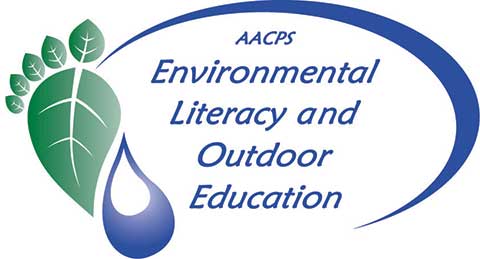 Arlington Echo has been recognized as a Green Center by the Maryland Association of Environmental and Outdoor Educators (MAEOE).
Arlington Echo has been recognized as a Green Center by the Maryland Association of Environmental and Outdoor Educators (MAEOE).
The Maryland Green Center Program recognizes facilities that model efforts in environmental education, conservation, sustainable practices and community engagement. Maryland Green Centers offer support to schools working towards the Maryland Green Schools Award.
Check out our “green” highlights.
Bird Conservation
Composting
Electric Hand Dryers
Enery-Saving Lighting
Green Roof
Living Shoreline
Locally Grown Foods
Native Plants
No Idle Zone
Pervious Concrete
Rain Barrels
Recycling
Solar Panels
Stormwater Landscaping
Waste Watchers
Water Fountains
 Bird Conservation
Bird Conservation
Wild birds face many challenges because of human activity ( e.g., loss of natural nesting sites, free-roaming cats, window strikes, pesticide poisoning). Arlington Echo gives wild birds a boost with bird feeding stations to supplement their natural diets. This is especially helpful in cold weather. Bird feeders can also provide a quick energy stop for busy bird parents We have also installed a variety of nest structures to give wild birds additional support. Birds use these structures during the nesting season to shelter and protect their families. In winter, some birds roost together for warmth in nest boxes. We also plan to make changes to our windows to protect birds from window strikes.
For more information about feeding birds, visit Cornell Lab of Ornithology Feeding Birds.
For more information about nest structures, visit Cornell Lab of Ornithology NestWatch All About.Birdhouses.
For more information about protecting birds, visit Safe Skies Maryland.
 Composting
Composting
Composting is a way to conserve natural resources and reduce the amount of waste going into landfills. Composting is recycling natural materials into “humus,” a soil-like product that can be used to improve soil quality. During meals at Arlington Echo students learn what waste can be composted. Leftover food that is plant-based can be composted. Our compost demonstration area shows different styles of compost bins.
For more information about composting, visit EPA Composting at Home.
 Electric Hand Dryers
Electric Hand Dryers
Electric hand dryers conserve trees and reduce paper waste. These have been installed in the restrooms in our two main buildings.
 Energy-Saving Lighting
Energy-Saving Lighting
We are using LED lighting and motion-sensing light switches to reduce the amount of energy used for lighting on our site. LED stands for “light emitting diode.” These long-lasting, energy-efficient lights have replaced all other interior and exterior types of lighting on our site. Light switches with motion sensors have also been installed in various locations. If people forget to turn out the lights when they leave a room, the motion sensors will do it for them after a short time of sensing no movement in the room.
For more information about energy-saving lighting, visit Lighting Choices Save to You Money and Lighting Controls.
 Green Roof
Green Roof
The green roof on the boat house is made of living sedums, plants that are adapted to extreme temperature and drought. The plants remove nitrogen from the rainwater, which helps prevent algae blooms in the river. The green roof also insulates the building, keeping it cooler in summer and warmer in winter.
For more information about green roofs, visit Maryland Department of the Environment Facts about Stormwater Management & Green Roof Technology.
 Living Shoreline
Living Shoreline
Through strategic placement of stone, sand and native plants, the living shoreline reduces erosion and sedimentation and provides habitat for a wide variety of aquatic species. This shoreline also dampens wave action, which further protects all area shorelines from erosion.
For more information about living shorelines, visit Watershed Stewards Academy Living Shorelines.
Locally Grown Foods
Students learn about eating sustainably which includes eating locally grown foods when possible. They prepare a snack from locally grown produce in season: pickles from locally grown cucumbers, applesauce from local apples, and kale salad with locally grown kale. In addition, AACPS Food and Nutrition Services participates in the “Farm to School” program, which benefits students and local farmers, and the “Tasting of the Rainbow” program which encourages students to eat colorful, healthy fruits and vegetables, locally grown when possible.
For more information about locally grown foods, visit Benefits of Local Foods.
Native Plants
We use native plants in our gardens at Arlington Echo. Native plants are low maintenance. They thrive in the local climate without extra water or fertilizer. They also provide habitat for local wildlife, such as insects and birds.
We also conserve some special native plants such as pitcher plants and sun dews, carnivorous plants that attract and digest insects. These plants are endangered in Maryland because there are few bogs remaining, due to development. We also propagate Atlantic White Cedars, a rot-resistant tree that needs wet soil and can grow to be 80-100 feet tall. These trees are considered rare because of past logging and habitat loss.
For more information about native plants, visit University of Maryland Extension Home and Garden Information Center Native Plants.
Why include native plants in your garden?
 No Idle Zone
No Idle Zone
Idling cars, trucks, and buses waste fuel and create air pollution. Maryland has a law prohibiting idling for more than five minutes. Our “no idling” signs remind drivers not to idle.
For more information about idling, visit Maryland Department of the Environment Idle Free MD.
Pervious Concrete
Pervious concrete is one of the many ways we treat storm water at Arlington Echo. Pervious concrete is specialized asphalt with multiple layers of different sized aggregate. The aggregates promote infiltration of rainwater into the ground. Water filters through the pores, slowing down and depositing sediment and pollutants that it is carrying with it.
For more information about pervious concrete, visit EPA Soak Up the Rain: Permeable Pavement.
Rain Barrels
Throughout Arlington Echo we have rain barrels attached to the downspout of every building—that’s a total of 96 rain barrels. Rain barrels gather the rainwater that falls on the roofs. The barrels collect the first flush of stormwater that is loaded with pollutants from the air. The water is then slowly released into a garden or shallow dry well area where it infiltrates the soil and is cleaned. By diverting water from storm drains, the impact of runoff into streams and the Chesapeake Bay is greatly decreased.
For more information about rain barrels, visit Watershed Stewards Academy Rain Barrels.
Recycling
Recycling is a way to conserve natural resources, reduce waste and pollution. We participate in Anne Arundel County’s single stream recycling program. Paper, plastic, and metal are recycled. Single-stream glass, which is not suitable for recycling, is crushed and used as part of daily cover in landfills.
For more information about recycling, visit Anne Arundel County Recycling.
Solar Panels
Arlington Echo has solar panels on the roof of Field Hall. These panels generate electricity from the sun’s energy, thus reducing our carbon footprint from greenhouse gases.
For more information about solar panels, visit Maryland Consumer’s Guide to Solar.
Stormwater Landscaping
Stormwater from some of our roofs and paved surfaces is diverted into our demonstration coastal plain bogs. These areas collect rainwater and release it slowly into the environment through evaporation and wicking. This reduces the impact of our stormwater on the Severn River and the Chesapeake Bay. These areas also provide habitat for native plants and animals.
For more information about landscaping to manage stormwater, visit Watershed Stewards Academy Conservation Landscapes.
Waste Watchers
We encourage students to reduce food waste. Reducing food waste reduces the environmental impact of producing, packaging and transporting food. This also reduces the amount of waste going to landfills.
For more information about reducing food waste, visit EPA Reducing Food Waste at Home.

Water Fountains
We encourage students to use reusable water bottles. This reduces waste of resources and energy associated with single-use bottled water. Arlington Echo has water fountains configured to refill water bottles easily. Adult groups that meet on site are discouraged from bringing single-use bottled water.














